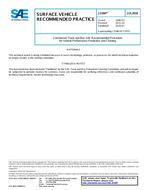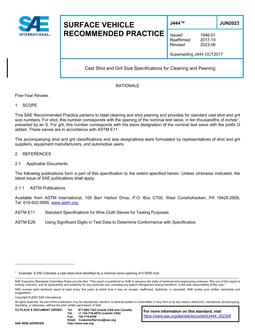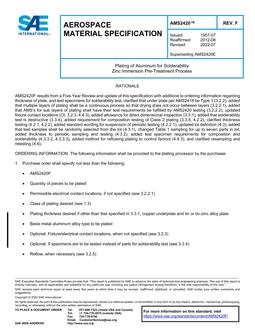
SAE J2188_201807
- Comments Off on SAE J2188_201807
- SAE
This SAE Recommended Practice takes into account modern standardized methods for collecting and summarizing data that has an effect on vehicle steady-state performance, such as engine output (gross and net), transmission losses, drivetrain efficiency, vehicle aerodynamic devices for various vehicle and body configurations, as well as road surface variations and air density variations resulting from altitude and barometric effects. The procedure does not address vehicle transient performance (acceleration, braking, and cornering), because of the considerable amount of additional data required such as moment of inertia of all the rotating parts. Nor does it address vehicles with torque converters and automatic transmissions. This document is, therefore, intended for vehicles having fixed-ratio type transmissions and positive engagement clutches. Metric and ISO unit conversions are provided in the metric conversion tables at the end of this procedure (see Appendix B).
Some modern vehicles with electronic engine controls have the ability to vary the maximum engine revolutions for each gear, as well as permitting the power or rpm to increase if more time is spent in the lower gears, as when climbing a grade. These special cases can be handled by this procedure, just by customizing the data for each transmission ratio and superimposing the long-term data on top of the instantaneous data.
All of the equations are written in a form suitable for programming into a mainframe or desk-top computer, using a spreadsheet/database or a higher level language, such as Basic, Fortran, Pascal, C or Unix, etc. However, they are simple enough, to be performed on a hand-held calculator.
Product Details
- Published:
- 07/25/2018
- Number of Pages:
- 17
- File Size:
- 1 file , 1.3 MB
- Redline File Size:
- 2 files , 4.6 MB



